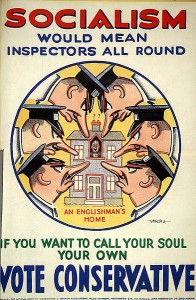Last week Cato held its annual Constitution Day celebrating the publication of the new 2013-14 Cato Supreme Court Review, with articles from such contributors as Roger Pilon, David Bernstein, Eric Rassbach, Andrew Pincus, Richard Epstein, and P.J. O’Rourke. They discuss most of the big and a few of the not-so-big cases of the past term, including Hobby Lobby, Canning, Schuette, Bond, McCutcheon, and Harris v. Quinn. The panel above (also available as video and podcast download) looks forward to the upcoming October term; it’s moderated by the review’s editor, Ilya Shapiro, with panelists Michael Carvin, Tom Goldstein, and Richard Wolf. The review concludes with an essay on the same general subject by Miguel Estrada and Ashley Boizelle.
This year, the contents of the review are available for immediate download (although we also encourage buying hard copies, of course.) As I’ve said while singing its praises before, it’s distinguished from conventional law reviews not only by its Madisonian point of view, and by its extreme speediness (published only three or so months after the conclusion of the Court’s last term) but also by its unusual readability and style, pitched to intelligent readers whether or not they are specialists in the law.

